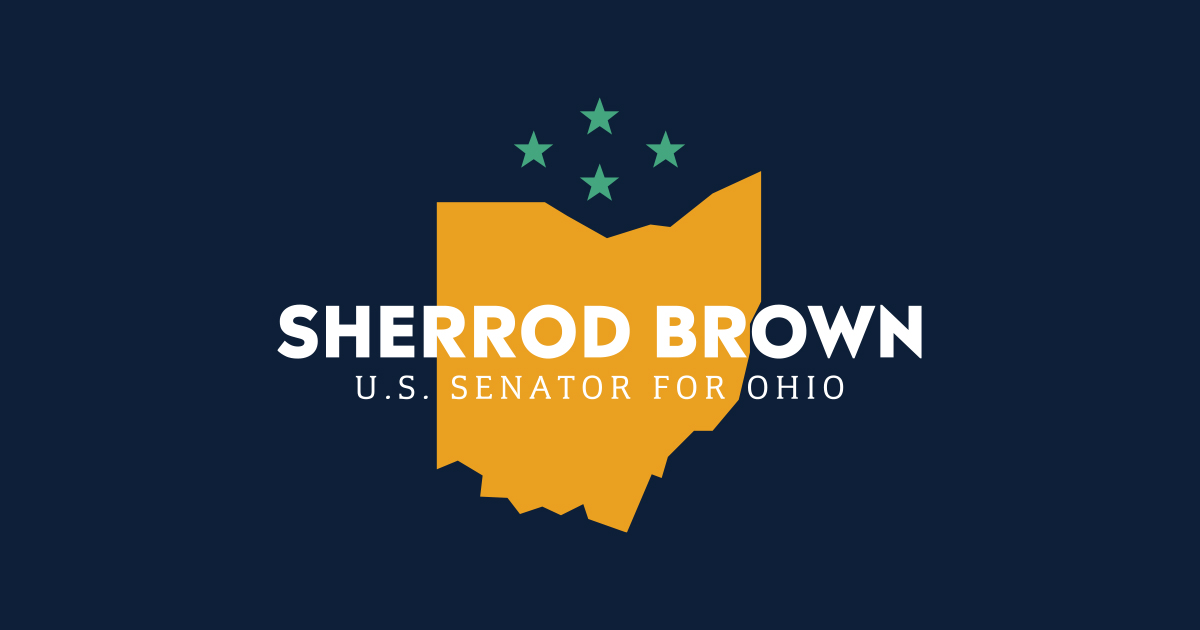Source: United States Senator for Ohio Sherrod Brown
WASHINGTON, D.C. – U.S. Sen. Sherrod Brown (D-OH), Chairman of the U.S. Senate Committee on Banking, Housing, and Urban Affairs, delivered the following opening statement at today’s hearing entitled “How Private Equity Landlords are Changing the Housing Market.”
Sen. Brown’s remarks, as prepared for delivery, follow:
One thing seems to be pretty much certain in this economy: no matter what happens to most Americans – a financial crisis, a global pandemic – Wall Street will find a way to profit off of everybody else’s pain.
We all remember 2008.
Nearly nine million workers lost their jobs. Workers’ savings were wiped out.
And nearly 10 million families lost their homes and everything that went with them –months and years of mortgage payments, their neighborhood school, the family pet, the stability of knowing where you live, where your kids would go to school, and where you’d attend church for the next 20 or 30 years.
But as families watched their dreams crumble, Wall Street found new opportunities to profit from the devastation it created.
As families – disproportionately families of color, who had been targeted with predatory loans – lost their homes, private equity funds with access to cheap cash were waiting to scoop them up.
Following the 2008 financial crisis, private equity funds bought families’ homes in cash, often at foreclosure auctions. And they bought the loans of the hardest-hit borrowers in bulk from FHA and the GSEs.
These professional investors weren’t shy about what made it possible – and profitable – for them to buy up tens of thousands of homes.
They told investors: “recent turbulence in U.S. housing and mortgage markets,” created a “unique opportunity.” And the availability of large quantities of single-family homes at “distressed prices,” and “strong demand from tenants” meant the opportunity for “attractive yields.”
“Unique opportunity” for “attractive yields.”
Think about that – in plain English, that meant take advantage of the foreclosure crisis – the crisis that turned homeowners’ lives upside down and gutted their hard-earned savings – to give Wall Street billionaires the chance to buy up homes for less than they’re worth, and rent them out at a steep profit.
And let’s also be clear – there would be, quote, “strong demand from tenants” because Wall Street preyed on people and cost them their homes. They would have to rent at those higher prices, locking in tenants, with no other options, for years into the future.
The largest investors in the world went on a buying spree. And they shopped strategically.
Neighborhoods with good schools in Atlanta, Phoenix, Tampa, and Charlotte became the centers of investment. By 2020, just seven cities contained more than half of the homes owned by institutional investors.
And as some private equity funds were buying single-family homes, another group of funds started targeting manufacturing housing communities.
The nearly 38,000 manufactured housing communities around the country have long been owned by small, local companies. The families who live there own their home, but rent the lot where their home is placed.
Many of the families who live in manufactured housing communities are low-income or on fixed incomes. Their median income is $35,000 a year. That doesn’t leave room for a rent increase or a broken down car – let alone being able to afford to pick up and relocate the home they own to a cheaper lot.
But when big investors began buying up these communities after the crisis, many of them raised rents, added new fees, and changed their policies – all without fixing up the communities the way they promised residents they would.
Residents like Ms. Hook, who we’ll hear from today, and like manufactured homeowners I met in Iowa, are left with an impossible choice: abandon the home they own with nowhere to go – with literally nowhere else to take their home – or pay rent they can’t afford.
That private equity business model has been preying on people since the housing crisis. So no one should be surprised that in the turmoil of a public health and economic crisis, Wall Street is running a similar playbook.
Today, in many cities and towns there are few affordable options. When private equity comes in and buys up homes in their town, many renters are left with no choice other than to accept the rising rents.
One of the largest single-family rental firms reported “record-breaking results” at the end of 2020, and a resource for manufactured home community investors reported that the properties just became more valuable.
It’s a variation on the same theme, no matter the industry:
They buy up companies like Toys ‘R Us and Sears, lay off workers to show a profit on their balance sheet, then close the business.
They buy up local newspapers, fire journalists, and any oversight or coverage of their corporate greed tends to disappear.
They buy up nursing homes, raise the prices, and neglect residents.
It’s all the same – private equity profits depend on squeezing every last nickel from workers and renters, without any kind of real investment in their employers or their communities.
It’s a symptom of one of the biggest problems in our economy – the Wall Street system is not set up to prize long-term investment. Private equity is all about the quick buck – everyone else be damned.
Today, we’ll look at how these firms have changed the housing market – and not for the better.
We’ll hear from our witnesses about how this hurts pretty much everyone except the big investors – renters pay higher rents or are forced out and families hoping to someday own their own home are priced out.
We’ll also begin to hear what we need to do to make sure that every family – whether they rent or own, whether they’re in Columbus or Atlanta or Charlotte – has a safe, affordable place to call home.
###
